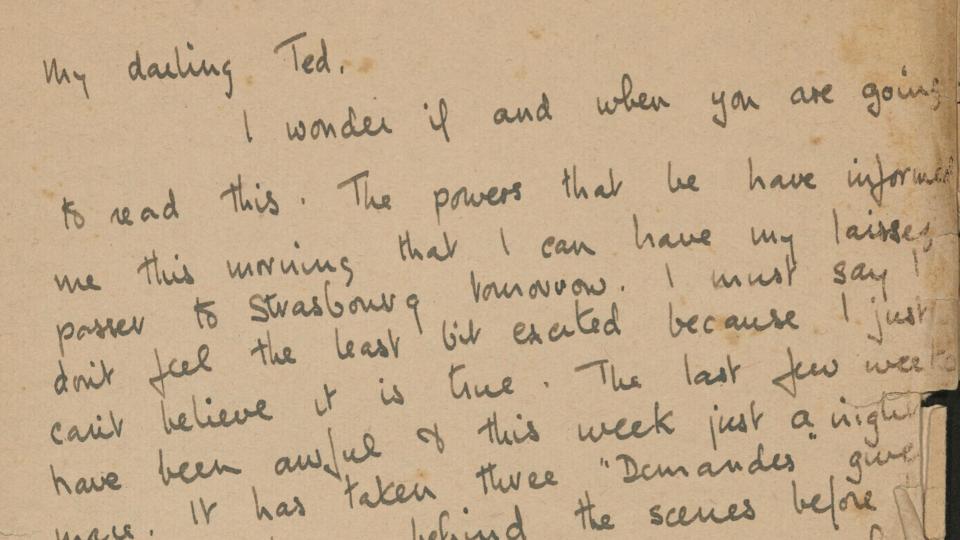Teacher's 'extraordinary' life in Nazi Germany
- Oops!Something went wrong.Please try again later.
The story of an Englishwoman who lived under Allied bombing in Germany during the Second World War has been told in a new book.
Dorothy May married a German man in 1938 and found herself in an enemy country the following year.
The 250 letters that she wrote to her husband, Paul, after he was conscripted into the German army have now been published in Freiburg Letters: An Englishwoman in the Third Reich Writes to her Missing Husband 1942-1946.
The book will be launched as part of a conference, Writing the Air War, at the International Bomber Command Centre in Lincoln on Saturday.
Her story was a "really rare example of the perspective of an Englishwoman living under the Allied bombs", said Prof Heather Hughes, of the University of Lincoln, who helped to organise the conference.
Born in Stockport in 1910, Mrs May was the granddaughter of a Lincoln man. She married a theatre stage manager, Paul May, and lived in his home city of Freiburg.
In 1942, Mr May was conscripted into the Wehrmacht (the German armed forces) and his wife began writing letters to him, describing her daily life in great detail, although most were never sent.
She never saw him again. It was later assumed he had died on the Eastern Front.

Prof David Stocker, of the University of Leeds, helped to edit Mrs May's letters and described them as "an extraordinary account of a woman who was in a state of complete isolation".
He said: "She was in a foreign country and she was keeping up a front for the neighbours. The whole time she worried she would be singled out."
Food was scarce and she foraged in neighbouring forests. She also dug anti-tank defences.
After the war she exchanged English lessons for food and, after a protracted struggle, was finally able to return to England in 1946.
'Valued possessions'
Mrs May moved to Lincolnshire in 1948, taking a job as a teacher at Middle Rasen Primary School.
She worked there until she retired in 1970, but none of her pupils or colleagues were aware of her wartime experiences.
It wasn't until after her death in 2003 that a distant relative, Michael Bassett, opened a bureau in her home.
Prof Stocker added: "He opened the bureau, expecting to find a load of jewels and what he found was this stock of letters, which were obviously her most valued possessions."
The letters finally came to print through the efforts of Mr Bassett, who taught himself German and travelled to Freiburg to investigate the story.
Later, he handed on his work to Prof Stocker.
Mrs May, whose grandfather was a Lincoln lamplighter, never spoke about her life in Germany, but her story is illuminating a dark period of history.
Follow BBC Lincolnshire on Facebook, X (formerly Twitter), and Instagram. Send your story ideas to eastyorkslincs.news@bbc.co.uk

